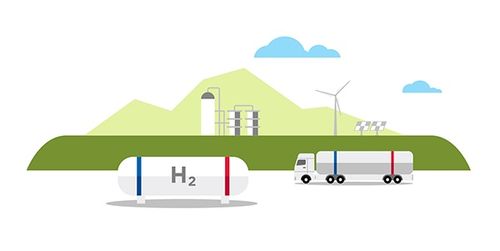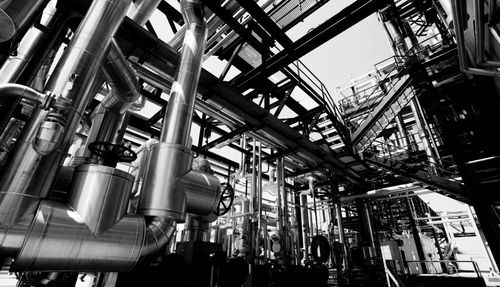Hydrofuel Canada, a developer of micro ammonia technology, is seeking strategic partners for a CAD 5m Series A capital raise in anticipation of an initial public offering as early as next year.
The Mississauga, Ontario-based firm recently received U.S. patents for its micro ammonia production system (MAPS), which represents a breakthrough in smaller scale on-site, low-cost ammonia production possibilities, CEO Greg Vezina said in an interview.
“Our cost to make hydrogen at end use all-in including capex, opex, and 8% financing is $1.30 per kg” before tax credits, Vezina said. “We’re pretty confident that over the next couple of months, we’re going to put together a group of investors, strategic partners, and quite frankly, a board of directors that’s going to choke a horse.”
The $1.30 per kg price for hydrogen – in ammonia – depends on an electricity price of 2 cents per kWh, Vezina said, and correlates to a price of around $456 / ton of ammonia. Cracking the ammonia at end use takes between 10% – 15% of the hydrogen, resulting in a final price of hydrogen of around $1.50 per kg.
For comparison, with electricity at 3 cents per kWh, the price of hydrogen in ammonia climbs to $1.57 per kg.
Hydrofuel is looking for five strategic partners that will each put in CAD 1m, which would advance its micro ammonia offering to commercialization. It already has orders in the book and expects to have $1bn of orders by the time it goes public via a planned initial public offering next year, Vezina said.
“We’ll go public in 2025, essentially to raise the money to deliver our products,” he said.
The company is also looking to partner with renewables developers with planned wind energy resources near ammonia demand centers in the U.S., so that the resulting ammonia production can qualify for 45V tax credits for clean hydrogen.
Vezina has been a proponent of ammonia solutions for decades, and reportedly drove an ammonia-fueled Chevy Impala across Canada in 1981. He believes that the MAPS technology will be a disruptive force in the emerging market for green hydrogen and ammonia. While Hydrofuel claims to produce ammonia on site at $1.50 per kg, the cost to transport ammonia alone — other than via a long-distance pipeline — is not currently less than $3 per kg, Vezina said, citing a recent study from the World Bank.
“I’m going to bankrupt everybody in the electrolyzer business worldwide,” he said, adding his view that the economics of large-scale electrolyzer projects make them unviable where they rely on expensive transportation networks.
MAPS
To date, Hydrofuel has raised CAD 5m, with management and employees still owning 40% of the business. In the current capital raise, Hydrofuel is selling 25% of the company, amounting to a $20m valuation, Vezina said.
The U.S. patent was issued for Hydrofuel’s MAPS 1.0 product, which utilizes externally produced hydrogen to synthesize with nitrogen from air to make ammonia. Vezina says the patent also covers the MAPS 2.0 product, which combines hydrogen and ammonia production in the same unit, but Hydrofuel has filed for an additional patent for MAPS 2.0.
Hydrofuel signed a licensing agreement for the MAPS technology with Georgia Tech University in April 2022, and later began collaborating on research and development with Colorado State University.
Farmers are a main target market for the technology, Vezina said, noting that farms can cut their anhydrous ammonia bill significantly. Industrial users of ammonia, including medical-grade ammonia, are also targeted customers.
The cost of the MAPS 2.0 unit, which has a capacity of 381 tonnes per year, is USD 850,000, and customers can secure a unit by making a $10,000 deposit with financing for 20 years, Vezina said. The company earns a profit of USD 425,000 for every MAPS 2.0 unit sold.
Vezinz said that accounting for US tax credits for clean hydrogen production as well as renewables could cover almost the entire cost of the micro ammonia installations and renewables, given the cost of $1.50 per kg and the $3 per kg tax credit.
“So a lot of smart farmers could be getting a lot of free fertilizer,” he said.







